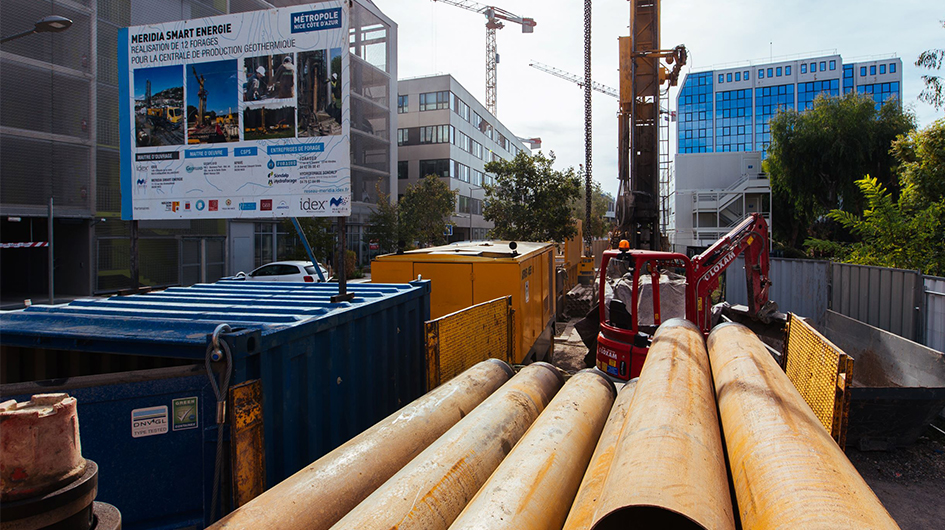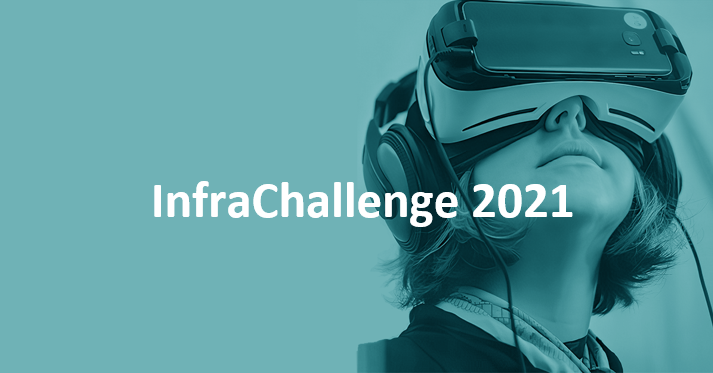193 results found
Featured results



More results
Join the GI Hub and G20 Italian Presidency for the two-day InfraChallenge 2021 final, featuring sessions with expert guest speakers exploring technological innovations and their role in creating resilient infrastructure, and the final of the InfraChallenge competition with live announcement of the 2021 winner.
In 2018, the City of Nice in southern France signed a 25 year contract with IDEX to design, finance, realise, operate, and maintain a heating and cooling network as well as to implement a smart grid for energy efficiency. IDEX is implementing this project in the 500,000m2 Nice Meridia district, which is home to office space, retail, leisure, housing, schools, and a hospital.
InfraChallenge 2021 invited ideas for building and maintaining better, more resilient infrastructure. Today we announce the Top 10 competitors.
InfraChallenge 2021 invited ideas for building and maintaining better, more resilient infrastructure. Discover who made the Top 20.
Discover how you can get involved with InfraChallenge 2021, applications close 12 March.


InfraChallenge is looking for practical and scalable tech-based ideas for building and maintaining better, more resilient infrastructure.
Can the needs of rapid urbanisation open the door to innovative emerging technologies?
Converting old unused mineshafts and canals into 'geothermal boilers' to produce electricity that can be transported to homes or public spaces.
Combination of sensors and AI to increase sewer capacity and reduce the frequency and magnitude of sewer overflows, especially during high rainfall events.
Building Information Modelling (BIM) and pre-fabrication technology being used in conjunction to enable the project to be built virtually before construction, reducing issues or inefficiencies that can arise during the construction stage.
53 members of our InfraTech Leaders Ecosystem – from more than 25 public and private entities – met for the first time to discuss ‘quick wins' and strategic priorities based on the World Bank's InfraTech Policy Toolkit, developed earlier this year to support the Riyadh G20 InfraTech Agenda.
V2V technologies are Cooperative Intelligent Transport Systems (C-ITS) that enable communication between vehicles to avoid accidents and and enable the optimisation of traffic flow.
A dynamic tolling algorithm recalibrates toll rates based on traffic congestion and local conditions every few minutes and is a tool to manage traffic demand through pricing.
Decentralised microgrids enable 'prosumers' to trade their surplus energy, resulting in reduced cost, increased use of renewables, and reduced demand on the energy grid.
Digital technology integrated into smart containers enable accurate near real-time monitoring and control of the condition, location and the environment of shipping containers.
Mobility as a Service (MaaS) uses a digital platform to integrates end-to-end trip planning, booking, ticketing, and payment across all modes of transportation.
Digital technology to enable regulators to measure water abstracted and use data for compliance and enforcement purposes.
Pedestrian and weather sensors installed at road intersections to adapt traffic light operation to match real time demand and safety requirements.
Advanced traffic management systems improve the performance of road services through the use of sensors, GPS, smart cameras, and weather information systems.



 InfraChallenge website
InfraChallenge website



















